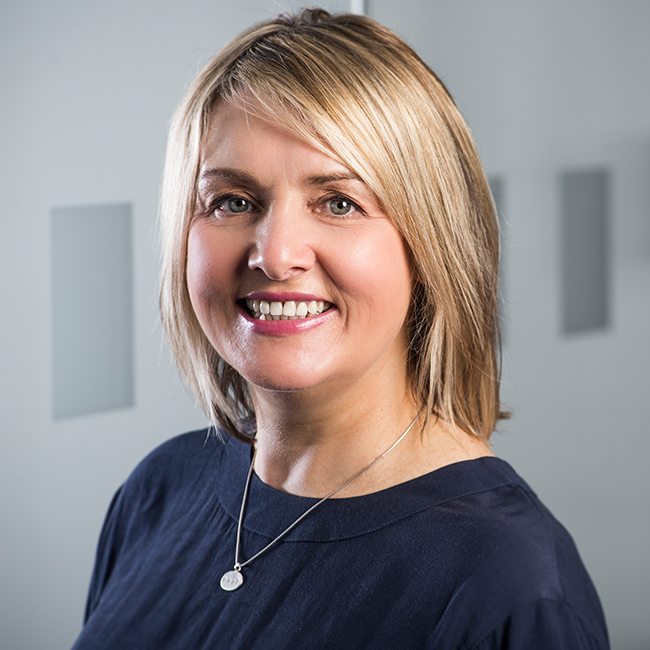Collective Impact – the Scottish entrepreneurial scene
By Eleanor Shaw - Posted on 19 October 2017
Head of the Hunter Centre for Entrepreneurship Professor Eleanor Shaw talks about work done in Scotland and Strathclyde to boost the entrepreneurial ecosystem.
Earlier this year we had a fantastic session with one of our Visiting Professors, MIT’s Bill Aulet (creator of the acclaimed Disciplined Entrepreneurship methodology) for our undergraduate and post graduate students, Growth Advantage Programme participant businesses and wider ecosystem partners. His visit was part of our continuing efforts as part of ‘Team Scotland’ to boost entrepreneurship and growth in Scotland.
The definition of entrepreneurship that the Hunter Centre has always worked to has a focus on growth. Entrepreneurship is growing a business of substance and scale – whether started from scratch, inherited or bought.
Strathclyde started teaching entrepreneurship in the mid/late 1990s at the time of the creation of centres for entrepreneurship throughout Scotland. Our step change – our own scale up - happened when Strathclyde alumnus Tom Hunter sold Sports Division and found himself a very wealthy man at age just 37.
Professor Jonathan Levie organised a trip to Boston for Tom, Jim McColl and John Anderson to visit MIT and Babson to show them what we should aspire to and Tom generously gave us a very substantial sum to establish the Hunter Centre – some 17 years ago now.
Today we have a staff of 16 and we have 26 PhD students and we are now one of Europe’s biggest centres for entrepreneurship and are honoured to have been awarded one of only five Small Business Charter Gold Awards in the UK.
With the scale that we have able to achieve with Tom’s support we believe we have a responsibility to share our research and teaching experience for the benefit of Scotland as a whole. We were co-creators of the Scottish Institute for Enterprise in 1999 which continues to provide a great opportunity to promote bet practice in entrepreneurial education and student enterprise. We have recently resurrected the Scottish Entrepreneurship Research Seminars to ensure that we continue to share best practice throughout the entrepreneurship teaching and research base in Scotland so that collectively we can get better and do more.
Nevertheless, through our connections with our international peers we knew that Scotland needed to raise its game – building on the great entrepreneurial ecosystem that had evolved in Scotland over the years and accelerate the development of growth businesses.
In 2012, Jonathan Levie joined a cross sector team led by Donna Chisholm, Head of Business Innovation and Growth Sectors at Highlands and Islands Enterprise which set out to define what was constraining our ability to scale-up the businesses entrepreneurs create and to identify action areas to overcome these constraints.
For the next two years this team from Scotland participated in the MIT inaugural Regional Entrepreneurship Acceleration Program (REAP) – which is when we first got to know Bill Aulet.
The end result was the REAP Scotland report “Increasing Innovation-Driven Entrepreneurship in Scotland through Collective Impact”. It is an active strategic plan and the key phrase is collective impact – working together for the whole of Scotland. Both the Exchange and Saltire Foundation also played key roles in REAP Scotland and we all continue to work closely together as part of Scotland Can Do Scale.
A key weakness identified by the research was in the area of skills required to scale-up a business and the report called for a structured approach to building knowledge - developing internationally outstanding executive education in a group learning environment, where networking, peer learning and the sharing of best practice between entrepreneurs greatly enhances the learning experience.
The REAP Scotland work is action oriented and as soon as the report was published Jonathan started to develop a growth programme to meet the recommendations of the REAP Report and, with the support of Santander, the Hunter Centre launched the Growth Advantage Programme last year.
GAP is a 10-month programme which provides a unique opportunity for the leaders of growth-oriented Scottish SMEs to take a step back from the daily demands of scaling their business to develop a robust strategy for growth combined with a practical action plan to deliver that growth. We’re delighted that we’ve just started with our third Growth Advantage Programme as we’ve had impressive results from both preceding cohorts.
The substantial impact of the programme was credited by participants to having greater clarity of the business, sharpening their value proposition, extracting more value from current operations, creating synergy from their portfolio of products and services, focusing on core values, measuring activities, having a greater focus on more valuable customers and changes in structures and people.
The benefits of the programme were not simply realised in terms of business performance but also resulted in increased confidence, more energy, more growth orientation and growing networks - and the participants continue to support each other on their growth journeys.
Jonathan continues to work hard to raise our collective game by leading on the Scottish HEI Entrepreneurial Ecosystems Group and this continued joined up approach and actions to raise Scotland’s game is a real credit to the REAP Scotland team and Donna and Bill must be congratulated on driving this forward.
I’m delighted that most recently, the Hunter Foundation funded a Babson Global Symposia for Entrepreneurship Educators programme for our academics and a selected group of entrepreneurs to ensure delivery of world class teaching. We’re delighted that the entrepreneurs who took part will be ‘Founding Entrepreneurs’ at Strathclyde and will work with us in the future on the design and delivery of our programmes.
That’s the thing I love about a subject like entrepreneurship - you cannot teach it or research it in isolation – it always involves entrepreneurs as guest lectures; case studies; hosts for student projects. It is very practical and very relevant and what drives us to do more – more research, more teaching, more engagement - with entrepreneurs and business builders.
It’s up to all of us to continue to work together to maintain this momentum and Strathclyde is determined to play its part.










